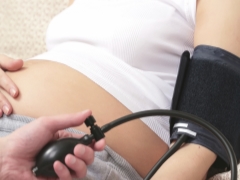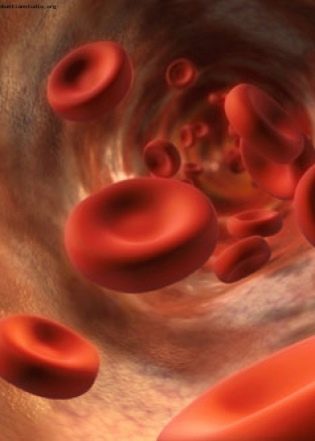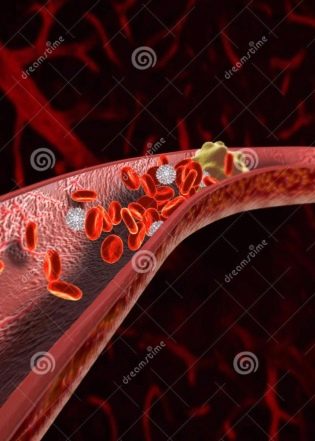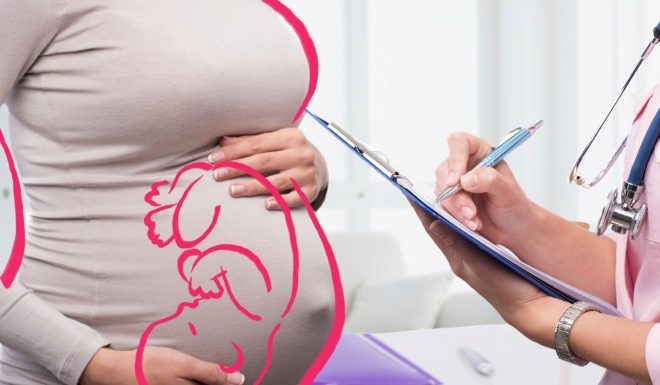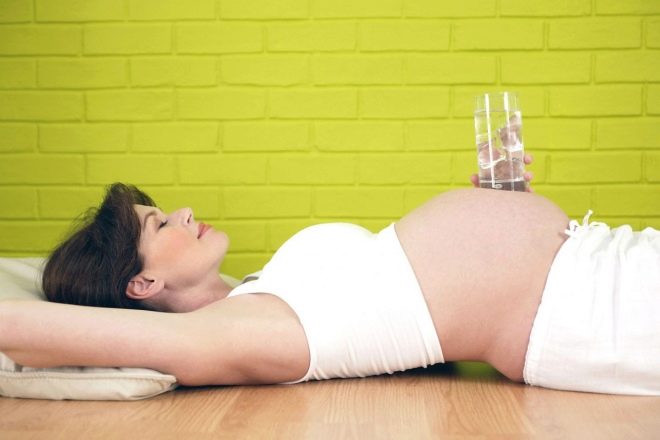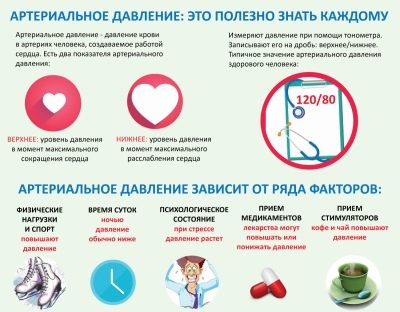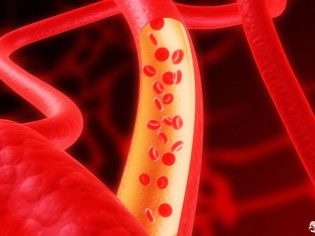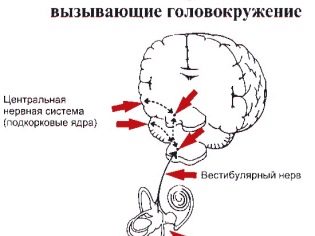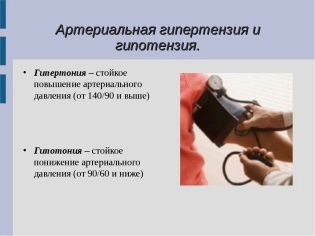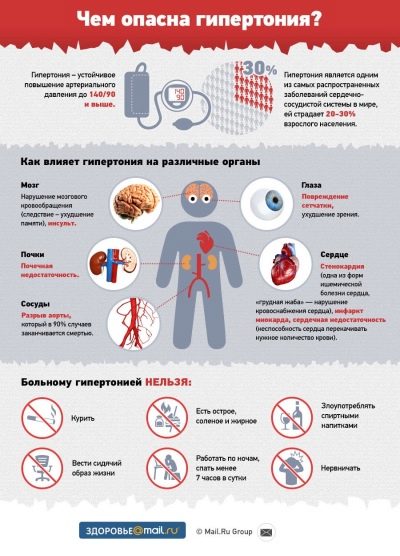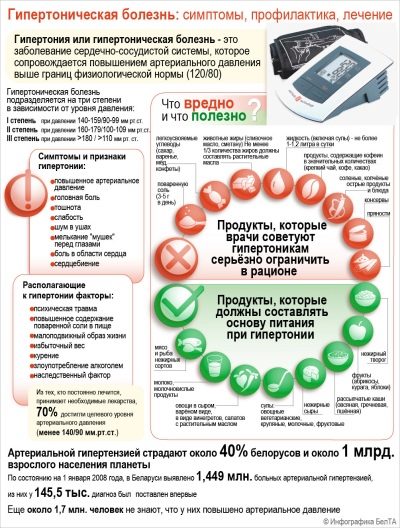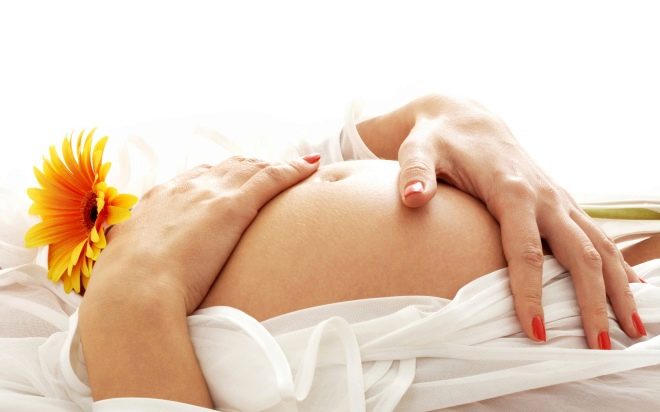Low pregnancy pressure
Blood pressure on the walls of blood vessels - blood pressure is a very informative indicator during pregnancy. It is not randomly measured at every scheduled visit to the doctor.
Most anxiety in pregnant women is caused by high and elevated pressure, since everyone has heard about its harm. Low pressure is somewhat underestimated, and therein lies a big mistake. Than dangerously low pressure and what to do to increase it, we will tell in this article.
What it is?
The abbreviation AD or AD means blood pressure - the pressure of blood on the walls of blood vessels from the inside. Everyone knows that by measuring pressure, the doctor indicates two numerical values.
One of them speaks of pressure at the time of the tension of the muscles of the heart when pushing blood. It is called systolic. This is the maximum pressure on the walls of blood vessels.
The second, which is indicated through the dash, is the diastolic pressure, denoting the degree of impact of the blood flow on the walls of blood vessels at the time of relaxation of the heart muscle. This is the minimum pressure. So it turns everyone’s familiar fraction - 110/60 or 130/80.
Low blood pressure is called hypotension. Hypotension during pregnancy itself is much less common than hypertension, a condition where pressure is elevated. But lower blood pressure values can also give a woman a lot of discomfort and anxiety.
Hypotension is acute and chronic. Acute illness in all cases, without exception, is associated with the complication of internal diseases and malfunctions in the most important systems - cardiovascular, circulatory, excretory.
Chronic hypotonia does not suffer from comorbidities and sometimes does not feel any signs of low blood pressure, therefore that they themselves have violated the system of regulation of blood pressure, for many - since the very birth, and therefore for them it is the norm.
Norms
Before talking about reducing or increasing pressure during pregnancy, a woman should remember what kind of pressure is characteristic of her in everyday life, because pregnancy is a stress for the whole body, and the concept of norms here is somewhat different.
If the future mother has always had a pressure of 90/60, and at the same time she feels great, does not complain about anything, do not expect anything else during pregnancy. This is the norm for this particular woman.
If the pressure of 130/80 is usual for a woman, then the indicators of the tonometer, which say that she has 90/60, is an alarming symptom that requires an immediate response from the doctor. In this way, pressure rates are somewhat relative.
Absolute average rate in medicine is blood pressure. at the level of 120/80. Variations in the range of 15 millimeters of mercury for the upper value, systolic, and fluctuations in the range of 10 millimeters of mercury for the lower index, diastolic, are permissible.
Low pressure is considered to be less than 90/60, reduced - less than 110/70.
Only the lower index may turn out to be reduced, while the normal upper one, low diastolic pressure is a rather alarming sign if the upper numerical value (systolic) is normal. In fractions, this can be expressed as 120/60 or 130/65.
Causes of pressure reduction
A variety of causes can cause a drop in blood pressure during pregnancy, both painful and quite natural, because the future mother's body is undergoing significant changes.
Physiological
Almost immediately after the follicle bursts, and the egg cell ready for fertilization, it turns out that a large amount of progesterone begins to be produced in the woman’s body, whose task is to prepare the uterine membrane for the upcoming implantation and create all the conditions for the baby to develop.
If the pregnancy has come, then the amount of progesterone increases even more, it suppresses maternal immunity so that it does not reject the embryo. Side effects of this hormone - nervous irritability, psychological instability, as well as relaxation of blood vessels.
Nature has provided all the details. If the pressure in the relaxed vessels is less, then less pressure will fall on the vessels, which are formed for the first time and again.
Such vessels include vessels of embryological structures, the placenta. In this way, pressure drop in 1 trimester is normalIt should not cause any worries and anxieties. On average, it is reduced by 10-15 millimeters of mercury. The pressure may remain somewhat lowered within the normal range during the second trimester of pregnancy.
By week 28, the volume of blood in the pregnant woman’s body increases significantly, leading to a physiological increase in pressure. Many women who were worried at earlier periods about lowering blood pressure, at this time the level of blood pressure returns to their normal values that this woman had before pregnancy.
The pressure drop in the 3rd trimester is normally not usually observed, if this happens, then a cause should be sought that is far from the physiological natural processes in the maternal organism.
Physiological hypotension is characteristic of women for which strong physical exercises are usualFor example, professional athletes, women living in high mountain regions, as well as in tropical and subtropical climates or working in a hot shop, as well as if their activity is associated with prolonged sitting in one place.
The widespread opinion that young thin girls, all as one have physiologically low pressure, is wrong. And after 35 years, a fairly full woman can have natural hypotension, if there are genetic prerequisites for this. A thin pregnant woman in 20 years may suffer from high blood pressure. The constitution in the case of low pressure does not play a big role.
Pathological
Low blood pressure may be a symptom of the disease. Unlike physiological hypotension, which does not cause any complaints in the fair sex, pathological causes often cannot go unnoticed. The most common ones are:
- heart failure;
- decreased vascular tone caused, in particular, by anaphylactic or septic shock;
- a significant decrease in blood volume (after bleeding, after burns and injuries, after surgery);
- previous injuries of the brain and spinal cord;
- disruption of the work of important glands - in particular, the thyroid;
- neurosis, prolonged stress, psychological distress;
- mental disorders associated with panic attacks;
- dehydration (for example, in vomiting associated with toxicosis);
- malnutrition, lack of sleep.
Symptoms
A slight decrease in pressure may not cause any symptoms.But the deviation from the normal values of more than 15 millimeters of mercury, most often already quite well felt by the future mother.
The most common signs of hypotension are:
- headache, which has the character of "dull and aching", localized mainly in the frontal-temporal lobe;
- severe weakness, which sometimes “rolls in” unexpectedly;
- almost constant drowsiness;
- irritability, emotional drops;
- increased weather sensitivity, the dependence of the state on the weather;
- distraction, noticeable memory impairment;
- profuse sweating;
- partial violations of thermoregulation - a woman can have cold hands and legs even in hot weather;
- the appearance of shortness of breath and high heart rate, even with little exertion;
- the skin of a pregnant woman becomes pale when pressure drops;
- bouts of nausea, and sometimes vomiting;
- dizziness, especially when trying to get up sharply or lean down;
- fainting.
A low-pressure pregnant woman may faint at any time, especially if she is in a stuffy room. The most dangerous are trips in public transport at rush hour, especially if the expectant mother has to stand while driving.
Pregnant hypotonia is difficult for the morning rises, even if she slept well all night. By the way, they need to sleep more than all other people. If an adult needs 8 hours a day for a good sleep, then a pregnant woman with low blood pressure needs at least 10-12 hours to rest and feel better.
In early and late periods, low blood pressure increases toxicosis.
If blood pressure has plummeted in the third trimester, the woman may need early delivery.
Danger
High pressure in pregnant women is considered dangerous. But the low, and even just low, quite dangerous. With low pressure, blood flows to all organs more slowly, sometimes in insufficient quantities. As a result, the child is undersupplied of oxygen, which is so necessary for normal growth and development.
The woman herself can also be observed oxygen starvation. Especially dangerous is the development of hypoxia of the brain.
Such a slow blood supply is also a danger in the generic process. In women, hypotension more often develops primary weakness of generic forces, contractions cease, which is fraught with fetal death, acute hypoxia. 95% of these situations end in an emergency cesarean section.
After giving birth to such women in labor, the uterus contracts more slowly, there is a real risk of bleeding. Children who in utero experienced oxygen deficiency for quite a long time are born weaker, sometimes with insufficient weight, in their subsequent development there may be lagging in physical and mental parameters.
A sharp drop in blood pressure in the second and third trimesters is dangerously sudden fainting, during which a woman may fall unsuccessfully, the child may die from injuries.
Shortly before birth, hypotension can cause the onset of premature placental abruption, which also poses a real threat to the life of the baby and his mother.
Treatment
A slight decrease in blood pressure in pregnant women does not require special treatment, general recommendations for changing the day regimen, labor and nutrition will be quite sufficient. However, in cases of a pathological sharp decline, the expectant mother will be prescribed a comprehensive treatment, which will include folk remedies, and maybe even medications.
Prescribing the treatment of hypotension to women in an “interesting position” is a daunting task. Almost all medicines that are designed to increase blood pressure are undesirable for pregnant women.Their action is based on the narrowing of the lumen of blood vessels, and it is extremely dangerous for the baby, who grows in the mother’s heart.
Vasoconstriction when using drugs occurs not only in the maternal organism, but also in the "mother-placenta-fetus" system, as a result of which the child will not receive the required amount of oxygen-rich and beneficial substances of maternal blood.
Therefore, in the correction of pressure in hypotonic patients in the state of pregnancy, they try to do without pills and injections, if there is no life evidence.
In the first place there are general tips that the expectant mother will have to strictly follow.
General recommendations
To sleep a woman with low pressure should be at least 10-12 hours. If the opportunity allows, then we should find time during the day to take a nap for an hour or two, or just lie down in a horizontal position with our legs raised.
You can throw your legs on the back of the sofa or put rollers, ottomans, large pillows or blankets rolled under the legs. Low pressure women find it difficult to fall asleep and wake up, therefore it is best to try to go to bed earlier and get up early, not forgetting the daily need in 10-12 hours.
During a night's sleep, it is better to leave the window or balcony door open, if the season allows. Constant access of oxygen will reduce the likelihood of a sudden night pressure drop.
Such situations happen quite often when a pregnant hypotensive is sleeping on the back and the fetus is pressing on the inferior vena cava. To sleep, you can choose a high pillow, under your feet you should also put a roller out of a blanket or padded stool.
In the morning, a woman should not get out of bed quickly. A sharp rise can cause an attack of dizziness and fainting.
You should also avoid sharp inclinations, changes in body position in space.
While doing gymnastics, desirable for all women in an "interesting position", it should be excluded from the complex of exercises those that are related to bending the body forward and to the sides, as well as down.
Advice to keep your legs elevated more often is very important. After all, when a woman adopts such a position, the blood from the lower extremities departs to the abdominal cavity, the pressure rises slightly, and her well-being improves.
By the way, this posture is an excellent method for preventing varicose veins in pregnant women. For some stabilization of blood pressure in a big way, you can try to wear anti-varicose stockings.
Most gynecologists fully approve of this “mode” for pregnant women with low pressure.
Increased exercise during childbearing is canceled, but with hypotension, long walks in the fresh air are desirable, as well as such activities as fitball exercise and swimming. Such exercises will help improve the tone of the vascular system.
A contrast shower is very useful., it allows you to quickly and practically safely raise the level of blood pressure. Practicing this method, you should definitely check with your doctor if you have a threatened miscarriage, because the contrast between cold and warm water can cause a sudden contraction of the uterine muscles.
The main safety rules are not to make the water too cold and too hot. Let the contrast be softer, and it will be possible to use more radical temperature changes after the birth in order to get a good physical shape more quickly.
Pregnant women with low blood pressure Stress and anxiety are strictly forbidden. They are often the starting mechanism for a sharp jump in blood pressure down.
It is desirable to control pressure independently, twice a day (in the morning and in the evening) measuring it with the help of a tonometer at home. The pressure on both hands should be measured. Modern devices eliminate the need for an assistant, the expectant mother will easily cope with this task herself.
The obtained values should be recorded in a special notebook in order to show the dynamics of one’s own state to the doctor at the next consultation in the antenatal clinic.
Nutrition
Nutrition while reducing blood pressure during pregnancy should be sufficient, you should not starve yourself and torment with special fashionable diets for expectant mothers. The only thing in which it is worthwhile to limit yourself a little is salt.
Many believe that since it is prohibited by doctors with increased pressure, it can also increase it if necessary, and begin to lean on pickled cucumbers and dried fish. This tactic is erroneous, since the abundance of salt only exacerbates the unenviable position created by low pressure — edemas begin. Salt a day pregnant need no more than 5-6 grams.
With nausea caused by low blood pressure, the expectant mother can fight with savory crackers and crackers. They also facilitate the morning awakening, if a few pieces will lie on the bedside table
Regular drinking water will help raise the pressure. The more it is drunk, the greater will be the volume of blood circulating in the body. True, we should not forget about the probability of “earning” edema, and the daily amount of fluid should be discussed with your doctor. Usually it does not exceed 2 liters.
Foods that increase pressure should be in the diet every day whenever possible. It:
- strawberries;
- raspberries;
- black currant;
- celery root;
- cottage cheese;
- meat;
- a fish;
- seafood;
- cereals - buckwheat, corn, oatmeal;
- apricots;
- dogwood;
- liver;
- onion;
- walnuts;
- various types of cheese.
Particular attention should be paid to protein foods. It should be in sufficient quantity.
About coffee, without which people with low blood pressure do not think of a normal existence, during pregnancy you should consult a doctor.
If low pressure is not caused by problems with the heart and endocrine system, if in addition to low blood pressure, there are no other pathologies, the doctor may well allow the expectant mother to occasionally drink a cup of weak and additionally diluted coffee or coffee beverage. This is usually recommended when the next episode of decline occurs.
Folk remedies
Due to the almost complete impossibility of treating a pregnant woman with medicines that are simple and understandable to doctors, gynecologists often approve of traditional medicine.
The only condition is Be sure to inform your doctor about your desire to use such methods in the correction of blood pressure. An experienced doctor will not only discuss them with the future mother, but he will also prompt a couple of different time-tested alternative medicine recipes.
Here are just a few of the tools used - Rhodiola rosea (not tincture, namely the golden root grass), oxalis (it’s also hare cabbage). Both plants should be brewed as a weak decoction only with the permission of the doctor. Despite the absence of obvious contraindications for pregnant women, these medicinal plants have a rather impressive list of side effects.
Quite safe is the preparation of homemade fruit drinks from raspberries and black currants. However, cranberries and lingonberries should be avoided in natural vitamins. These berries reduce pressure, and this should not be allowed.
Drug treatment
As already mentioned, the choice of medication is the task of the doctor, and it is not easily categorized. The drug method of raising pressure is an emergency measure, which is needed only in case of a sharp and severe drop in blood pressure, fainting.
In such a state, women are usually tried to be hospitalized in order to be treated in a hospital. The following medications are sometimes used:
- "Pantocrin". This preparation, based on the extract of antlers reindeer, effectively increases the pressure by stimulating the central nervous system, increasing vascular tone.The drug is not contraindicated for pregnant women, although specific instructions state that it is not necessary to prescribe it to expectant mothers due to the lack of sufficient and convincing clinical trials in this group of patients. However, the drug is actually prescribed, and is used, however, under the supervision of a doctor.
- "Dipyridamole." This medicine, the main active ingredient of which is the substance of the same name, improves microcirculation, increases the speed of coronary blood flow. In the first trimester, the use of the drug is impractical, but in the second and third trimesters, the drug can be prescribed, if necessary. There are other drugs, but their use is carried out only stationary.
Physiotherapy
If necessary, the doctor may prescribe a pregnant woman, in addition to the correction of the diet and daily regimen, physiotherapy. The most effective during pregnancy are considered electric, balneotherapy, electrophoresis. At the direction of the doctor, such procedures can be obtained in the clinic at the place of residence or in a private clinic with its own physiotherapy room.
Prevention of hypotension
The prevention of hypotension during pregnancy is wiser to begin to engage even before its occurrence, at the planning stage.
A woman at the time of registration in the dispensary registration in the antenatal clinic should be well aware of Is it characterized by low blood pressure, and under what circumstances it usually goes down. For this, it is advisable to first visit the therapist, and, if necessary, the cardiologist.
If there is a tendency to decrease blood pressure, it is necessary to warn the gynecologist, who will observe this pregnant more closely. Without waiting for blood pressure to make its first jump down, a woman should stick with important rules that will minimize the chances of complications:
- sleep enough time, at least 10 hours per night;
- eat fully, do not overeat, but not indulge in their food, especially in protein;
- to walk more often in the open air, to do the best possible gymnastics, to go swimming, if there is a possibility and there are no contraindications from the obstetrician-gynecologist;
- do not take any medication without the consent of the doctor, many drugs as a side effect lower the pressure;
- Do not ignore the symptoms of deterioration, with the appearance of characteristic signs of hypotension, an unplanned visit should be made to the attending physician. You should not be afraid of immediate hospitalization; with reduced pressure, women are sent to the hospital much less frequently than pregnant women with elevated blood pressure.
Consultation is necessary so as not to lose valuable time if the situation requires immediate assistance.
All about hypotonia in pregnant women will tell the doctor in the next video.
